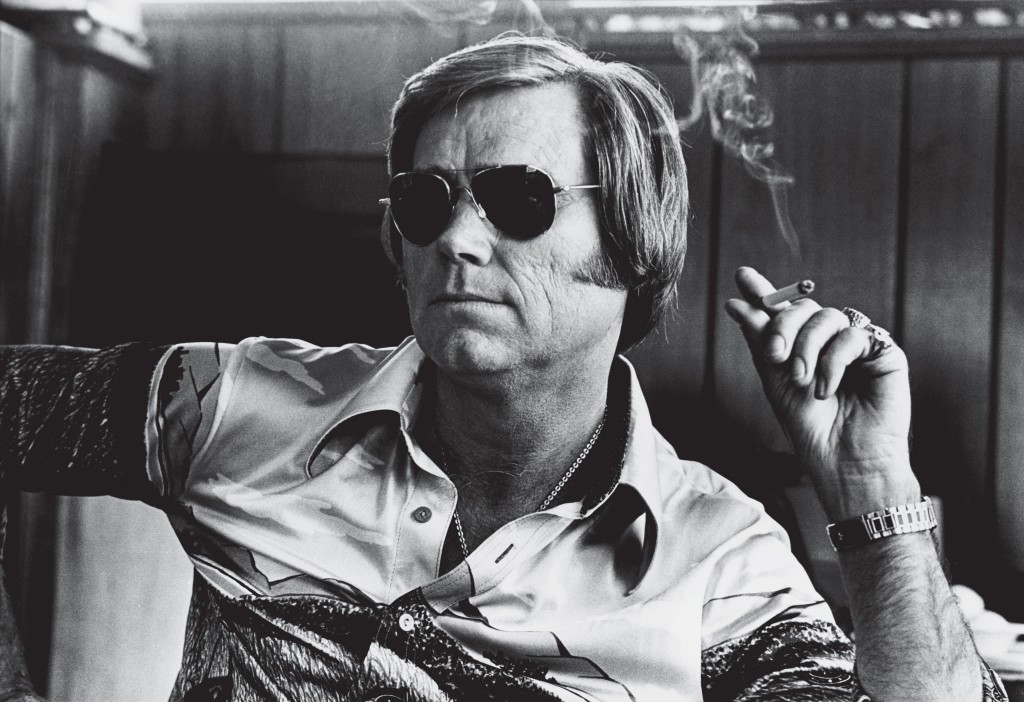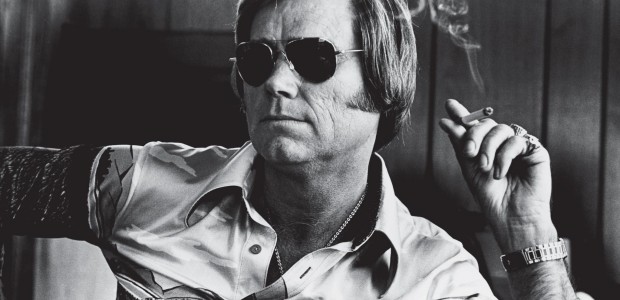
I learned about country music via punk rock from my cool-as-hell dad. He brought home the best country-tinged punk records by The Replacements (All Shook Down) and X (See How We Are) and Elvis Costello & the Attractions (Almost Blue). But my father also stereo-blasted plenty of George Jones when I was growing up. No wonder I associate badass hillbilly music with punk—and vice versa. Today, I enjoy the gamut of country-punk bands, from Lucero to Social Distortion.
There are few moments on earth as satisfyingly melancholy as cueing up a George Jones song on a barroom jukebox and drinking a cold beer. For me, Jones will always represent the definitive male country music singer, more so than Merle Haggard, Johnny Cash or even Hank Williams Sr. No other vocalist—except maybe Sinatra, who didn’t write his material either—could so completely, and without self-pity, inhabit the lyrics of a tear-stained, two-and-a-half-minute tune. No one was as lost or lustful. No one was as wretchedly, wrenchingly lonely.
If you doubt this, check out “World of Forgotten People,” written by Loretta Lynn. Listen to the way Jones transforms what might have been, in lesser hands, just another honky-tonk tale of heartbreak into something cosmic and shattering. He’s not morbid or navel-gazing. He delivers the lyrics with aching clarity.
Well, I’ve loved and I’ve been loved
But I had a reckless heart
And the many dreams I had I’ve torn apart
Now I find that I was wrong
Too late, I’m all alone
Alone in a world of broken hearts
Jones recognized great songwriting and played to his strengths. His lucid, keening voice lent itself to existential widescreen dramas. He was rarely persuasive when detailing scenes or reciting narratives. (His murder ballads tend to fall flat.) He excelled at using large brush strokes to paint redneck tragedies, infusing working-class anguish with ecumenical heroism. The recurring character—it’s always the same guy—in his songs is damned, and perfect in his damnation. You smell whisky on his breath. You sense a bible on a motel bed. A loaded revolver waits patiently on the dresser. For the first time, in the span of a song, the guy has pierced the veil.
And you can really hear that fucking door click shut, the one the guy’s girlfriend or wife closes for the last time in “The Door,” written by Jones’s longtime producer Billy Sherrill. Every time this song plays, a part of my soul is slivered and seared. Jones distills a veteran’s isolation, the inability to love and be loved after having been shot at, mortar-stalked. Jones never says it, but you can’t help but suspect the character selfishly, stupidly, fell on the grenade of his passion.
I’ve heard the sound of my dear old mama crying
And the sound of the train that took me off to war
And the awful sound of a thousand bombs exploding
And I wondered if I could take it anymore
There were times when they almost drove me crazy
But I did my best and took it like a man
But who would think in my lonely room I’d hear it
The one sound in the world my heart can’t stand
I almost can’t stand it, knowing another country legend no longer walks the planet. Fortunately, his recorded output in the ’60s, ’70s and ’80s is voluminous and, with few exceptions (mostly quick-cash compilations), of very high quality. Jones was called the Greatest Living Country Singer for good reason. He sang for those on whom the door had closed. He sang for the ignored and discarded. For the shell-shocked in lonely rooms, withering from the agony of bad romance.
He sang for a world of forgotten people.
I always have jukebox bucks to spin a George Jones song while I sip a beer and ponder what it means to be a man—reckless-hearted and torn apart.
Jarret Keene is a contributing music editor and writer for Vegas Seven Magazine. You can read more from Keene at weeklyseven.com.
photo from https://www.facebook.com/TheGeorgeJones






No Comments